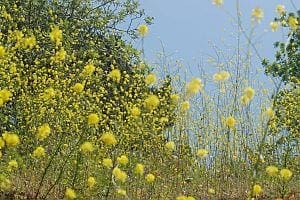statFor some women, it's about making an elegantement at special events or being a couple…

NASA’s Plant Shopping List
 Indoor air quality is becoming an increasingly important issue these days, with the increase in pollutants not only from the outside environment, but also from common items inside your home, such as carpets, furniture made with particle board, household cleaning products, paint and even air fresheners. So what can you do to help ensure that the air you and your family breathe every day is as clean as possible? Plants are actually excellent air purifiers, and NASA has come up with a list of the best ones for absorbing harmful gases and helping to keep the air in your home fresh. In a 2-year study conducted by NASA in partnership with the Associated Landscape Contractors of America, researchers found that many common ornamental household plants were highly effective at removing indoor air pollution and combating what is known as “sick building syndrome,” the symptoms of which are irritation to the eyes, nose, throat and skin, and general flu-like symptoms. Some of the gases and airborne microbes these plants are found to be effective at removing are formaldehyde, benzene, carbon monoxide, trichloroethylene and mold. Many of the 15 plants they tested were able to remove up to 87 percent of indoor air pollution in only 24 hours. The plants included in the study were:
Indoor air quality is becoming an increasingly important issue these days, with the increase in pollutants not only from the outside environment, but also from common items inside your home, such as carpets, furniture made with particle board, household cleaning products, paint and even air fresheners. So what can you do to help ensure that the air you and your family breathe every day is as clean as possible? Plants are actually excellent air purifiers, and NASA has come up with a list of the best ones for absorbing harmful gases and helping to keep the air in your home fresh. In a 2-year study conducted by NASA in partnership with the Associated Landscape Contractors of America, researchers found that many common ornamental household plants were highly effective at removing indoor air pollution and combating what is known as “sick building syndrome,” the symptoms of which are irritation to the eyes, nose, throat and skin, and general flu-like symptoms. Some of the gases and airborne microbes these plants are found to be effective at removing are formaldehyde, benzene, carbon monoxide, trichloroethylene and mold. Many of the 15 plants they tested were able to remove up to 87 percent of indoor air pollution in only 24 hours. The plants included in the study were:
- Hedera helix – English ivy
- Chlorophytum comosum – Spider plant
- Epipiremnum aureum – Golden pothos
- Spathiphyllum ‘Mauna Loa’ – Peace lily
- Aglaonema modestum – Chinese evergreen
- Chamaedorea sefritzii – Bamboo or reed palm
- Sansevieria trifasciata – Snake plant
- Philodendron scandens ‘oxycardium’– Heartleaf philodendron
- Philodendron selloum – Selloum philodendron
- Philodendron domesticum – Elephant ear philodendron
- Dracaena marginata – Red-edged dracaena
- Dracaena fragrans ‘Massangeana’ – Cornstalk dracaena
- Dracaena deremensis ‘Janet Craig’ – Janet Craig dracaena
- Dracaena deremensis ‘Warneckii’– Warneck dracaena
- Ficus benjamina – Weeping fig
According to lead NASA researcher Dr. Bill Wolverton, who conducted the study and has written a book on the subject called, How to Grow Fresh Air—50 Houseplants that Purify Your Home or Office, the houseplants that are most effective at removing pollutants with the least amount of care are the peace lily, areca palm, lady palm, ficus alii and golden pathos. These not only cleanse the air, but also add a healthy amount of humidity to the environment. In addition to improving the decor, homes filled with houseplants have been found to have between 50 and 60 percent fewer bacteria and mold spores. English ivy is a particularly good mold remover, eliminating up to 60 percent of mold in the area in only 6 hours. In order to optimally purify the air in your home, it is suggested that you allow for 1-2 plants in an 8 to 10-inch pot for every 100 square feet of living space. Be aware that some plant leaves are toxic, in case you have animals or young children. Plants can be a quick, beautiful and natural solution to reducing the effect of air pollutants in your home.




